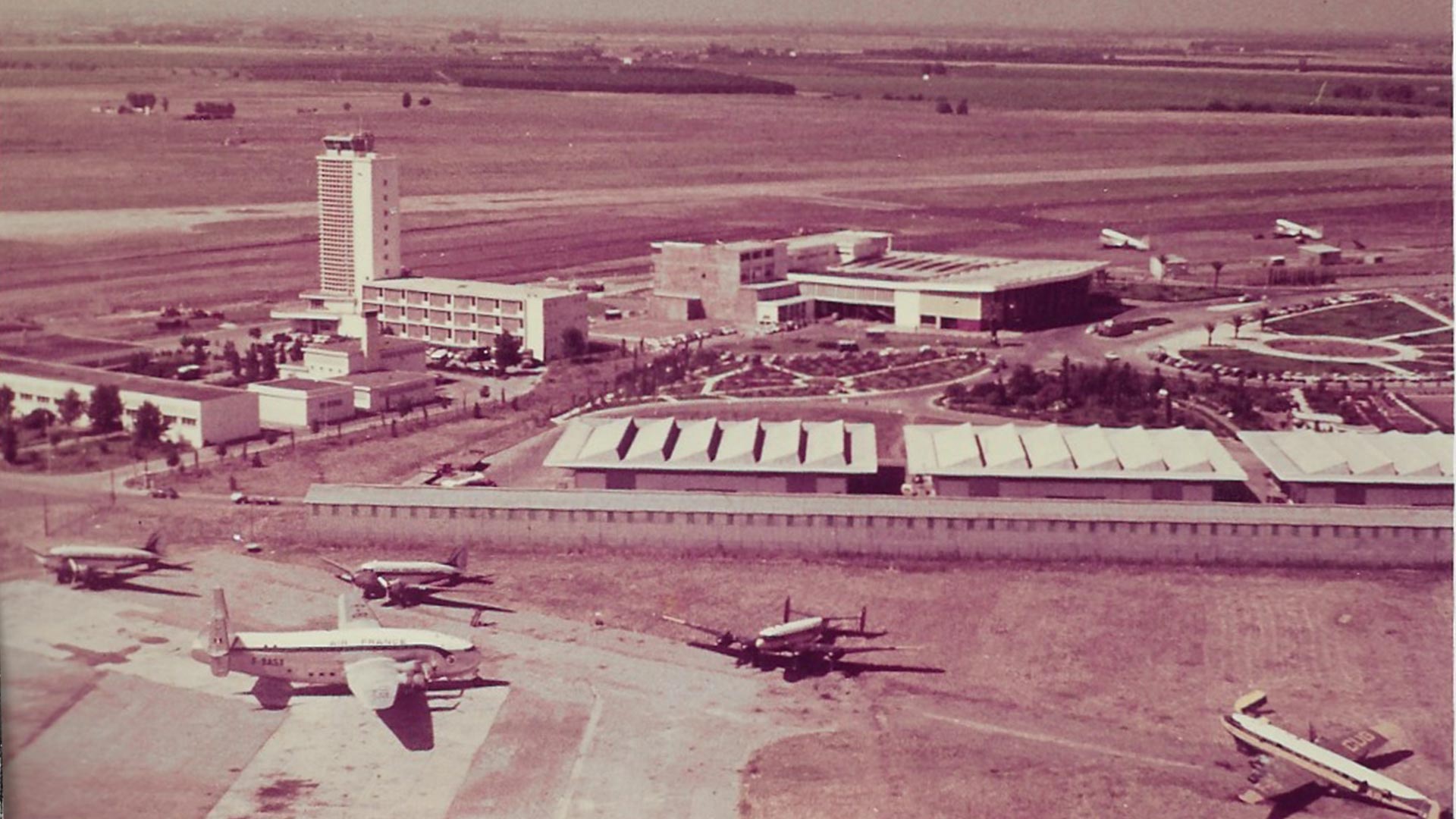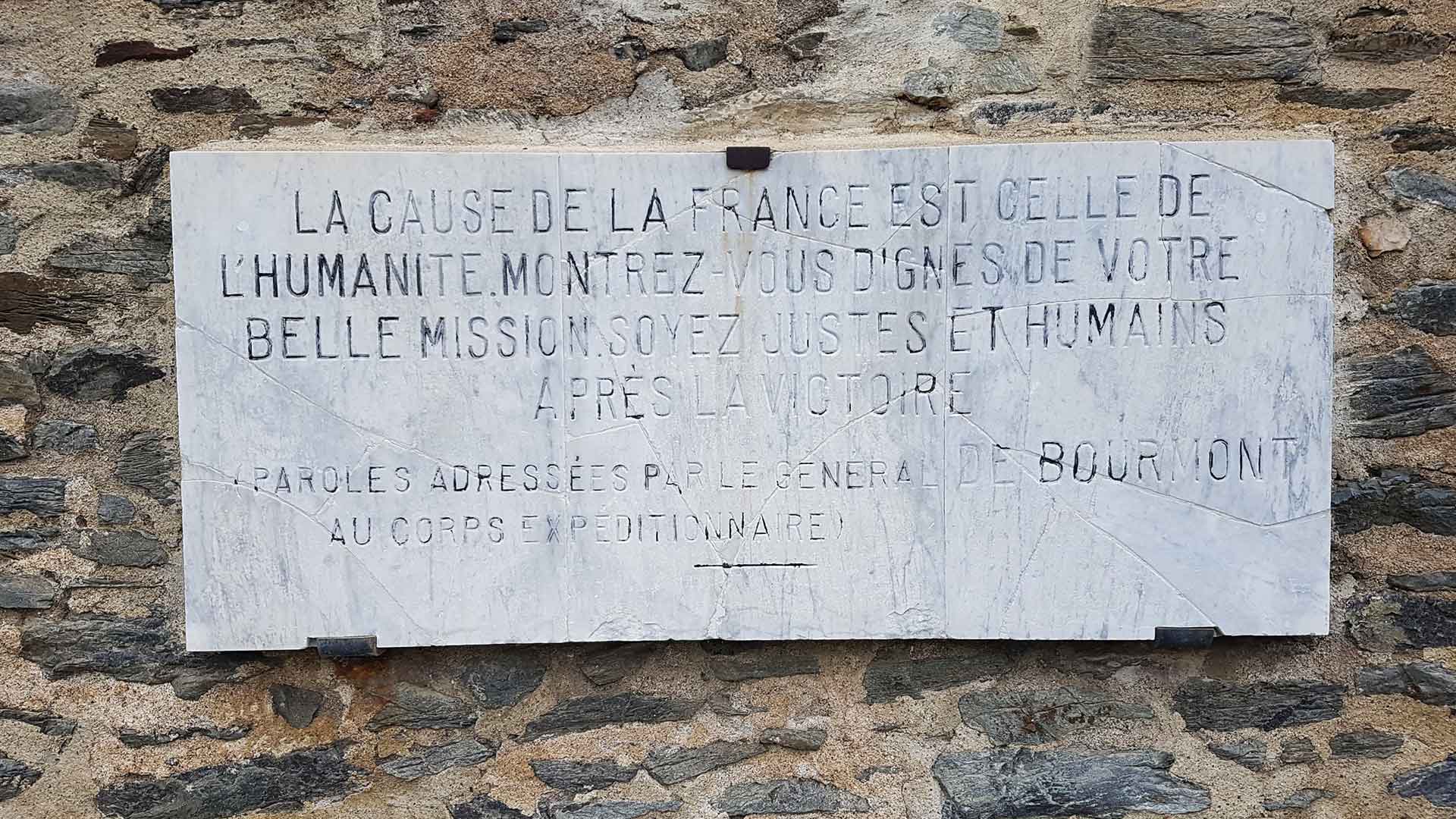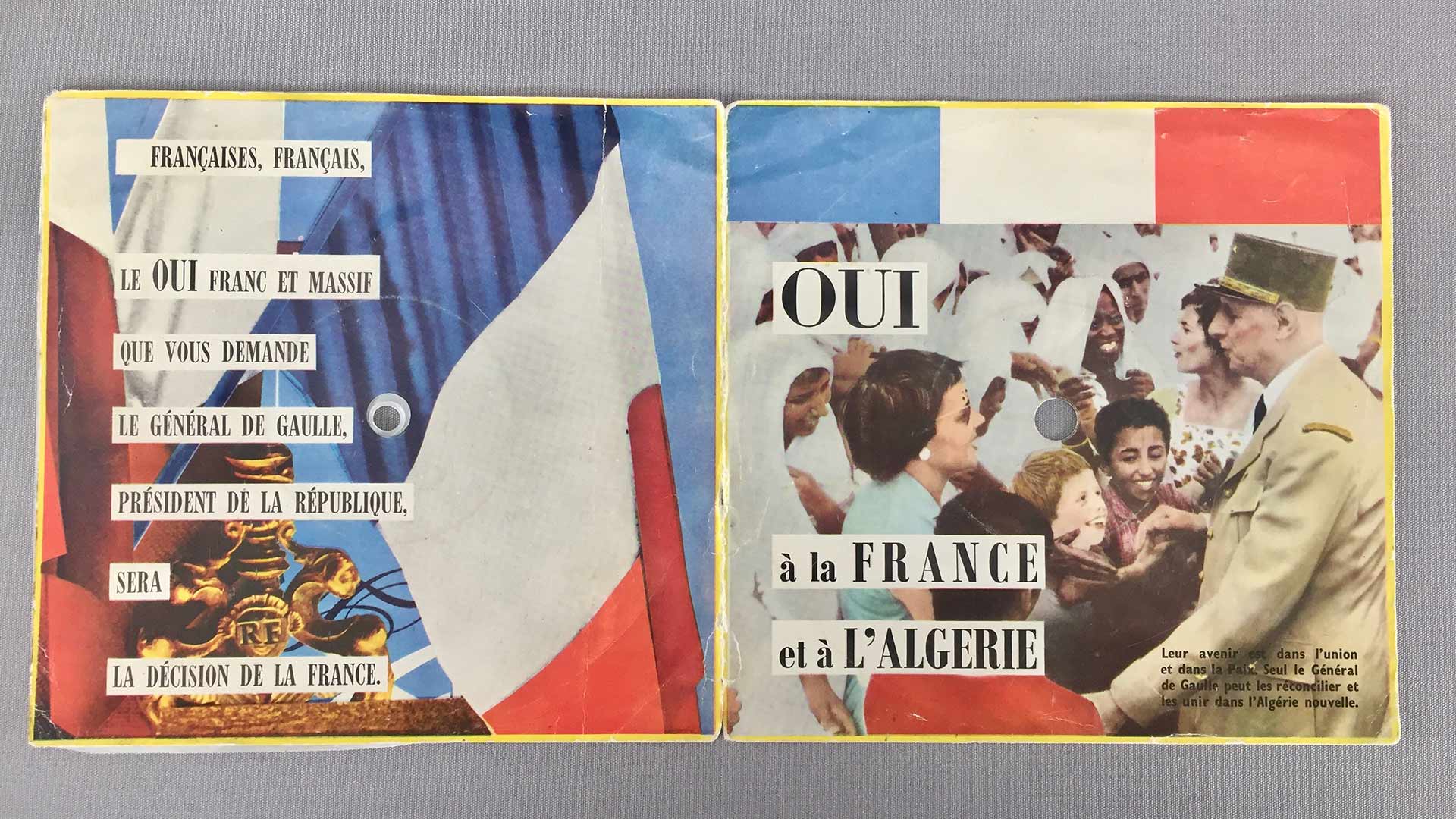Televising 'repatriation'
The year of Algerian independence, 1962, was also in the middle of the ‘trentes glorieuses’ of the post-war economic boom in France. More and more French people owned television sets through which they would access news about the Algerian War. These televised reports can give an insight into how the settlers saw themselves and were viewed by others by the end of French Algeria.
This news report [transcript in English below] was broadcast on 21 May at 1pm, a little over two months after the Evian Agreements. The iconic image of ‘pied-noir’ memory of their departure from Algeria tends to be one of crowds of impatient settlers waiting to board cramped ferries for Marseille. However, a number of settlers also left by plane, especially if their destination was Paris.
In this report, a journalist interviews settlers arriving at the Marseille-Marignane airport, just as they step on to French soil. The footage cuts to the Algiers ‘aérodrome’ to images of other settlers still in Algeria, waiting in the sun to board a plane to France.
The report demonstrates a curiosity for the situation of the settlers who were now being called the ‘repatriates’ but doesn’t draw any conclusions about their future in France. It shows that many settlers were unsure about the length of this ‘repatriation’. From March to the date of this video, 200,000 settlers had left Algeria. Over the next months, another 600,000 would leave in the largest trans-Mediterranean migration since the Second World War.
Transcript in English
Journalist: Madame, please, could I ask you where you’ve arrived from? Woman 1 : From Algiers. Journalist: Yes. Did you have any trouble getting a plane? Woman 1 : Oh! Yes, rather. Journalist: Yes, how was it? Woman 1 : Well, listen, I … I was at, from half past 4 … to 11 in the morning at the Algiers Aerodrome, in absolutely dreadful conditions and … I don’t understand why for that matter. Journalist: Were there many people at the airport? Woman 1 : Yes, from 6 in the morning, people were arriving and standing around behind the barbed wire at the entrance of … Journalist: And getting to the airport, was there any trouble? Woman 1 : No, arriving was fine, it was getting inside. Woman 2 : Well, we were inside, okay, but outside there were at least 500 people who were still waiting to leave. Man 1 : As far as leaving’s concerned … there was a bit of turbulence but well, all the same … it’s the season for it, my goodness, it’s not bad! Journalist: Did you have any trouble boarding the plane? Man 1 : Well, physical difficulties, because we had to wait in front of the airport and I don’t know if there weren’t enough planes or … It’s probably a shortage of planes because there were crowds of people, there’s a lot of people, but everyone is waiting because - especially because the military and soldiers on leave take priority. That’s not to say that they go first, but, well, you wait. Journalist: Do you think you’ll stay in France definitively? Woman 3 : Monsieur, it such a difficult problem. Journalist: Yes, you don’t know yet. Woman 3 : If there really, really is independence, it will be impossible to go back. Journalist: That’s it. Woman 3 : It’s impossible. That’s why the women and children are coming. Journalist: And what was the situation like when you left? Woman 3 : Awful Monsieur. You can’t put it any other way. It’s terrible, terrible, what’s happening is awful. There are no words to express exactly what’s happening, for us as well as for them.



